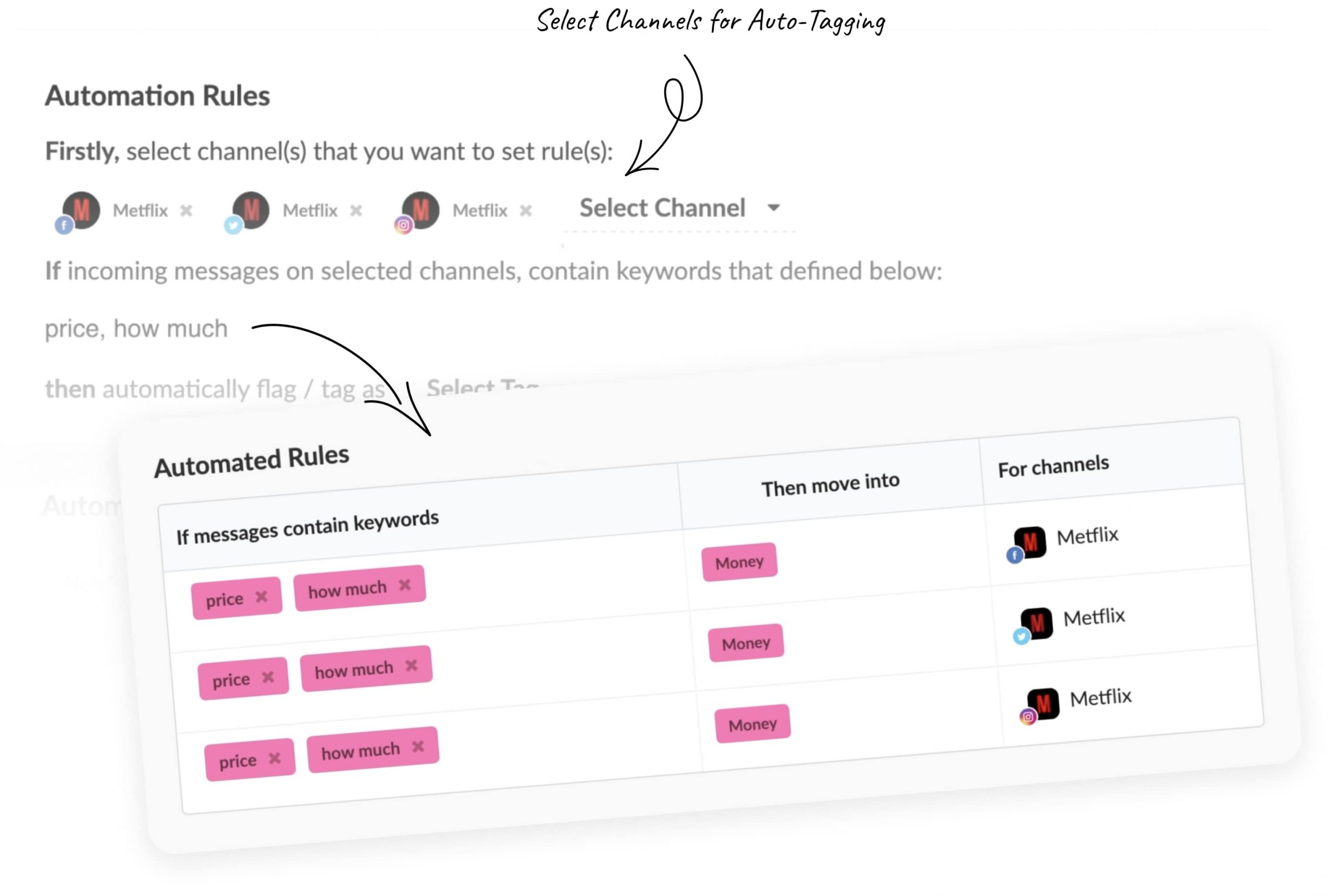6 Online Reputation Mistakes to Avoid
İpek Aktaş
Nowadays, social media has become an inseparable part of our lives, and that’s why your business’ online image is an essential factor that should be considered in detail. Of course, reputation management should be a top priority for any business. However, B2B brands are perhaps the ones that depend on their reputation the most.
Companies can communicate with their customers regularly through social media, allowing them to develop relationships long after a product’s purchase or sale is finished.
For this reason, hang on to your hat and let us explain the importance and six don’ts of online reputation management for those who would like to achieve the reputation they like on social media.

What Is Online Reputation Management?
Online reputation management is the practice of maintaining your online brand image at a good level. It involves constant monitoring and managing the public perception of your company or brand to build a positive image. Online reputation management can be an effective way for a business to improve its standing with customers and build trust among existing customers.
If you ask what you should “manage”, we can say there are three aspects:
- Build an online reputation
- Maintain the online reputation
- Recover any damages to your online reputation
There are a number of different elements that can impact your online reputation, including:
- Reputation management tools: These tools include tools such as Google Alerts and web analytics, which allow you to monitor search results and track changes in your online visibility.
- Social media presence: It’s important to have a presence on all the major social media platforms to respond quickly to issues that surface online.
- Online reviews: By actively soliciting feedback from past clients, employees, and other third parties, you can establish an accurate picture of what people think about your business.
Managing your online reputation successfully will reduce the risk of an adverse incident impacting sales and can also help reduce liability in case of a problem or lawsuit. While there are many different types of online reputation management, they all have one thing in common: They’re designed to improve people’s overall perception of your brand.
Fortunately, we know the don’ts, and we will present them with real-life examples.
Further Reading – Best Practices for Effective Online Reputation Management

Do you manage your online reputation efficiently? If you need ideas, tips, and tricks for online reputation management, read more now!
How Can Social Media Damage Your Online Reputation?
Social media can be an effective tool for businesses to promote their brand and engage with customers. However, before you start posting on your company’s social media profiles, be sure to consider the potential risks.
One of the biggest risks is that online content is shared publicly, which could lead to a reputation crisis. Unauthorized third parties could also post false information about your business, creating a negative image and hurting your reputation. Your name can be mentioned in any tweet, and you might not notice it before it’s too late.

Social media content could go viral and be seen by a wide audience. Similarly, negative feedback can be seen by lots of people quickly. This could result in harmful consequences for your business, such as losing customers or bad press.
While there is no way to completely eliminate the risk of damaging your reputation through social media, there are things you can do to minimize it.
Before anything, make sure you have the right team to manage your online media presence and reputation. You should monitor what is going on, how people react to your posts, their comments, and all other interactions. No comment should be ignored.
Your target audience’s behavior is an excellent source for creating an online reputation management strategy.
Don’t worry; all you need is the right tools to make managing easier and more professional for your business. With the right team and tools, you can succeed in online reputation management and improve your business’s online presence.
6 Don’ts/Mistakes of Online Reputation Management
Of course, there are some major mistakes that will lead to damaging your online reputation. Knowing them will make it easier to avoid the mistakes, and we are here to explain to you the most common mistakes businesses make while maintaining an online presence.
1. Don’t Ignore the Importance of Brand Voice

Getting defensive or using profane language is the ultimate red flag! If there is a negative comment, a complaint, or just a hate comment and you become defensive, it indicates that the individual has gotten under your skin and that the attack may be true. Even if the commentator is a hater, this behavior demonstrates a lack of self-assurance on your behalf. Handle complaints pleasantly and professionally at all times.
2. Don’t Be Hypocritical

One of the quickest ways to ruin your reputation is to trick your online community into believing you support a certain idea, only to contradict that idea in real life or another place. Similarly, if you have a clear attitude or if you behave in a kind of manner, that style should be your consistent manner online. You can’t go wrong if you’re true to yourself.
3. Don’t Delete Negative Reviews or Comments

Ignoring or deleting comments or reviews is the best way to show people that you don’t care about them and that you can’t take criticism. Managing your brand’s reputation requires owning up to your faults, and you can gain the clients’ trust this way. Your business can maintain a successful social media presence with the use of the right tools for social media listening and monitoring tools.
4. Don’t Reply to Everything with Canned Responses

Canned responses are the source of insincerity. We know they might be a great help, but canned messages make people think you don’t care about them. Personalized messages are the key to building trust and making them feel cared for. Of course, in some cases, you will need to use canned responses; the key point here is knowing when personalization is crucial.
5. Don’t Be Offline

Obviously, having an account is not enough. If you have an Instagram account, you should post photos and engaging content as well as reply to the comments. If you have a Twitter account, you should reply to mentions and tweet about your business. People will probably feel distant if you are a ghost account with some photos with no engagement. The more active you become, the more people will feel close to your business.
6. Don’t Ignore Consistency
Across all your online marketing platforms, you should maintain consistency in your visual and verbal branding. Whether it is a mention reply or a comment, your brand should always strike a clear attitude and comply with it. When your tone is consistent, it helps your brand to coincide with the brand image you prefer.
Your #1 Helper Tool in Online Reputation Management: Juphy 🦊
Of course, you are not on your own in this challenging journey. Juphy is here to help!
Juphy is a great online reputation management tool with its integrations and features. Juphy assists you in managing your online reputation successfully by never losing out on engagement and responding to social media inquiries as promptly as possible, from watching trends to offering customer care on social media.
Here are some of the features that will be highly beneficial while managing your online reputation;
- Team collaboration is perfect for dividing the workload since keeping track of what is going on on your social media channels can be challenging. With this feature, you can assign work to team members, collaborate on responses, create tickets, and do many more things.
- Automation rules allow you to classify, prioritize and organize the messages depending on different settings. You will save time and effort in responding to your consumers’ messages this way.

- A unified social inbox provides you with a platform where you can find all your social media and business accounts in one place. This unified platform lets you immediately reply immediately by monitoring comments, DMs, client expectations, common issues, remarks, mentions, reviews, etc. This makes it simple to view all your social media conversations in one location, making it possible to engage with your audience and keep everything under control actively.
- With social monitoring and listening features, you can always keep track of what is being said about your business on social media and act accordingly! The placement of keywords is beneficial for monitoring consumer perception of your brand. Additionally, customer reviews might provide you with a better approach to them.
There are many other features Juphy provides you with its easy-to-use interface. Juphy offers an intuitive dashboard that makes it simple to view all of your social media conversations in one location, making it possible to engage actively with your audience.
Create your Juphy account now and start your 7-day free trial!
FAQ
Online reputation management is the practice of maintaining your online brand image at a good level. It involves constant monitoring and managing the public perception of your company or brand to build a positive image.
1. Don’t Ignore the Importance of Brand Voice
2. Don’t Be Hypocritical
3. Don’t Delete Negative Reviews or Comments
4. Don’t Reply to Everything with Canned Responses
5. Don’t Be Offline
6. Don’t Ignore Consistency
Related Article – How to Make and Keep Customers Happy

Happy customers are your key source for business growth and success. Read our tips and tricks to make and maintain your customers happy.

